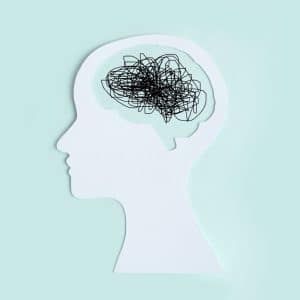What is a Good Therapist Profile?
Introduction
The Importance of a Good Therapist
A excellent therapist can make a big difference in someone’s life. They offer individuals support, guidance, and resources to help them handle difficult circumstances, manage their emotions, and improve their overall well-being. However, not all therapists are the same, and it’s critical to pick one whose profile matches your unique needs and preferences. What is a good therapist profile?
Qualities to Look for in a Therapist
1. Qualifications and Expertise
One of the first things to examine when examining a therapist’s profile is their qualifications and expertise. Look for therapists with the proper educational credentials, such as a master’s or doctoral degree in psychology, counselling, or a comparable profession. Check to see if they have been licenced or accredited by a respectable professional organisation in your nation. These certifications confirm that the therapist has met particular training criteria and follows ethical rules. For therapist website design read on.

2. Experience and Specialization
Therapy relies heavily on experience. While all therapists begin somewhere, it is typically advantageous to seek someone with extensive practical experience in the area. An experienced therapist has most likely dealt with a wide range of challenges and devised effective solutions to them. Consider their area of expertise as well. Some therapists specialise in certain areas, such as anxiety, depression, trauma, or relationship counselling. Finding a therapist who specialises in your area of concern can considerably improve the efficacy of therapy.
3. Approach and Techniques
In their practise, therapists employ a variety of approaches and procedures. Understanding the therapist’s prefered modality and how it corresponds with your needs is critical. If you want an organised and goal-oriented approach, you could look for therapists who use cognitive-behavioral therapy (CBT). If you want to explore your previous experiences and how they affect your present, a therapist who uses psychodynamic or psychoanalytic techniques may be right for you. Investigate various therapy approaches and speak with possible therapists to find the one that is right for you.

4. Good Communication and Rapport
In therapy, effective communication is critical. A good therapist should be a competent listener who is also compassionate and nonjudgmental. They should provide a safe and supportive environment in which you can share your views and emotions. Pay attention to how effectively you connect with the therapist throughout your initial sessions. Building a solid rapport is necessary for the therapeutic relationship to thrive and for you to progress towards your goals.

5. Cultural Competence and Sensitivity
Cultural competence is a critical component of therapy. Individuals come from a variety of backgrounds, and it is critical for a therapist to understand and appreciate varied cultures, identities, and experiences. A culturally competent therapist is capable of navigating potential cultural biases and providing inclusive and relevant therapy. Consider a therapist who is sensitive to your cultural background and informed about any special issues or concerns you may be experiencing. https://www.dynamicwebdesign.com.au/our-services/the-best-website-design-companies/
Conclusion
Finding a good therapist is an important step towards improving your mental health. You can develop a profile that matches your requirements and preferences by taking into account a therapist’s qualifications, experience, specialisation, approach, communication skills, and cultural competence. Remember that therapy is a collaborative effort, and selecting the proper therapist can make a significant difference in your personal growth and healing journey. What is a good therapist profile?






